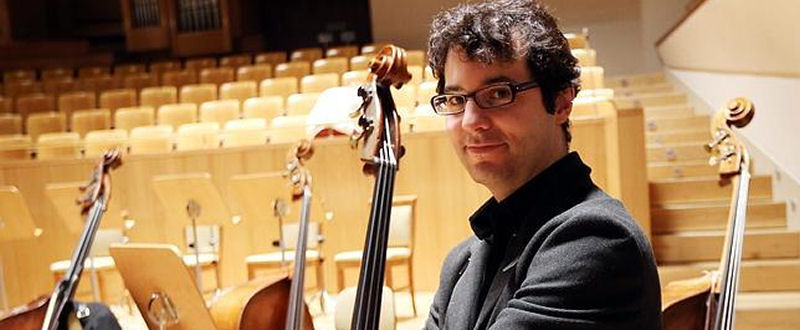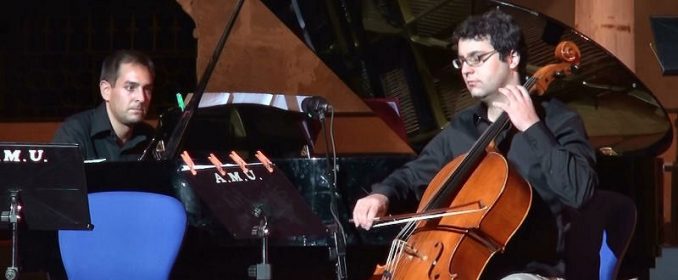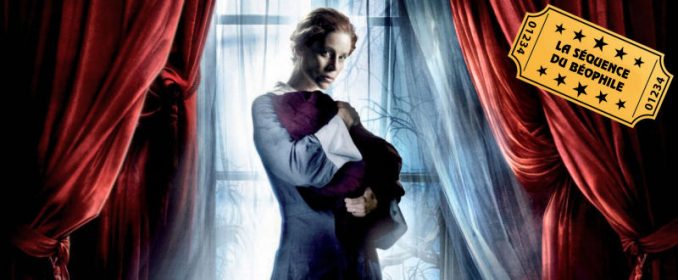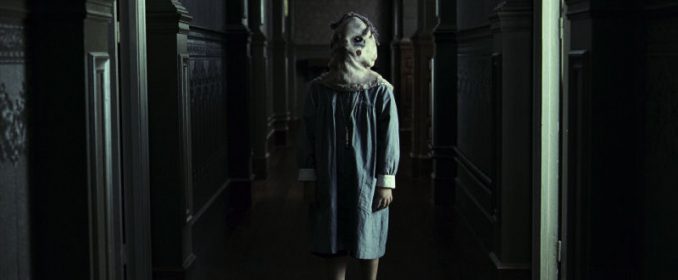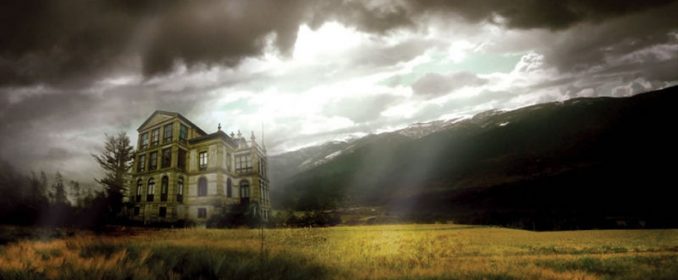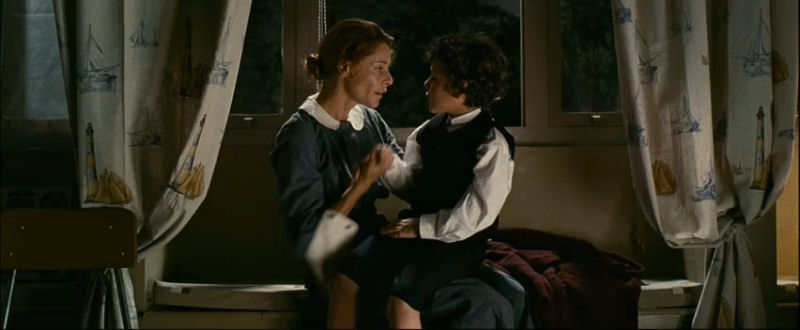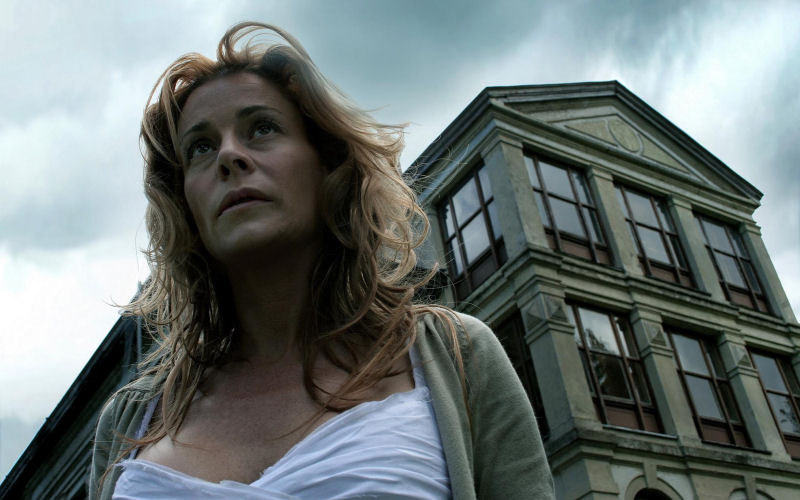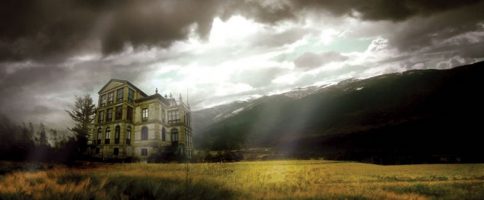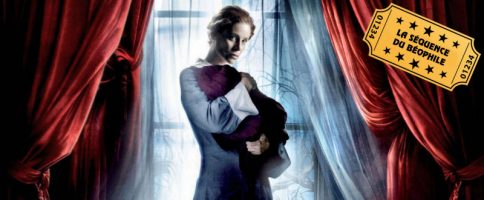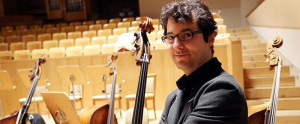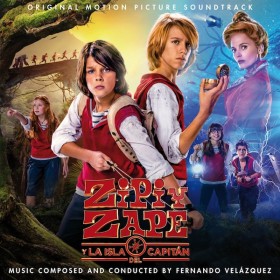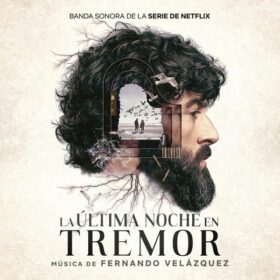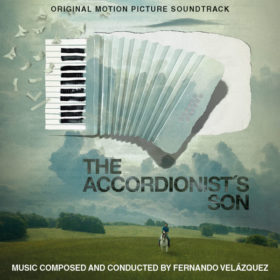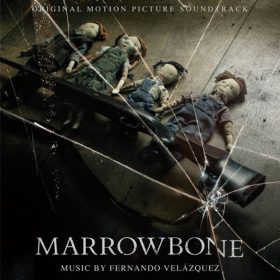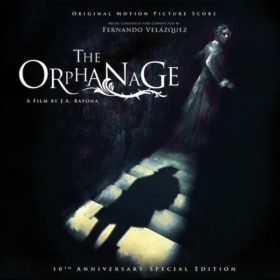![]() CLIQUEZ ICI POUR LIRE LA TRADUCTION FRANÇAISE
CLIQUEZ ICI POUR LIRE LA TRADUCTION FRANÇAISE
After previews at Cannes Film Festival and in many film festivals around the world (London, Sitges, Toronto, New York, Helsinki…), The Orphanage (El Orfanato) was released in Spain on October 4, 2007, becoming in a few months one of the biggest hits of the Spanish movie history. Subsequently, 2008 turned to be the consecration for this admirable movie, collecting no less than 7 Goyas (including Best Director) for 14 nominations (a record) and, among many others, the Grand Prize and the Sci-Fi Jury’s Award in France, at the Gérardmer Festival.
Along Juan Antonio Bayona’s directing, Fernando Velázquez’ score plays a very important part in the movie’s successful career. His extremely sensitive composition already is one of the best musical contributions to a movie in recent years. Loosing the Goya for Best Score of the Year to a well-know Spanish composer, Roque Baños, The Orphanage won a well-deserved Best Discovery of the Year Goldspirit Award at the International Film Music Festival of Ubeda.
Musician turned composer, 31 years-old Fernando Velázquez has scored many short movies (including El Hombre Esponja in 2002, already for Bayona), before being attached to full-length pictures including the drama Savage Grace (with Julianne Moore) for Tom Kalin, the thrillers Bosque de Sombras (The Backwoods) for Koldo Serra, Eskalofrío (Shivers) for Isidro Ortiz and Sexykiller, Morirás Por Ella from the director Miguel Marti, recently released in Spain. In 2009, he will be composing for El Mal Ajeno, the new picture from Óskar Santos Gómez, with Belén Rueda, the talented star of The Orphanage.
Warning : this interview contains many spoilers, do not read it unless you’ve already seen the movie.
Can you tell us about your beginnings, both in music and film music?
I’m supposed to be a cello player. I studied cello in my hometown for twelve years, and then I went to Paris for two years, so I could have lessons with a wonderful teacher, her name is Véronique Marat, to learn more cello. I never played with an orchestra, but I played music all the time at home, with a guitar, with a cello, with whatever that I had in my hands. And when I was in school, I played guitar, I used to make up some music, just like that, making music for things happening around me. And then I got the opportunity to write film music when a neighbor made a short film. His name is Koldo Serra, he made short movies, and later he directed a movie called Bosque de Sombras (The Backwoods) with Virginie Ledoyen and Gary Oldman. So I was so lucky that this neighbor of mine was such a great filmmaker. Actually, he was friend with Juan Antonia Bayona, and one day, absolutely by chance, we met in Koldo’s place, and we talked about working together. Juan was making a short film, he told me about it so I convinced my friends, the members of the young orchestra I was playing in, to go to the music school and record the music for this short film. All they got was a supper! (laughing). Well, I got the supper too! We were not paid at all, but it was unbelievable to be actually making music for a film. It was a short film, but it was a film, you could put it in a cinema ! It was amazing. So that’s how it worked, and the people whom I worked with finally made movies, and they hired me because they liked the way we worked together.
What is your approach to film music composition ?
I think the most important thing is the relationship and the way you can work with a director, because you must be his « musical brain », the musical part of his brain. The process itself feels like when you play this Mexican birthday game, where there is a bag stuffed with presents, we call it piñata in Spanish. And you got a stick, you are blind because you have something in front of your eyes. You cannot see what is happening unless somebody tells you: more on the left, more on the right, harder, softer… It feels like this, because you don’t really know where to go and what you have to do, but the director is giving you orders. So it’s lots of fun actually to be the director’s musical brain. I think it depends on egos as well, because some people have really strong egos. They do what they do, and they don’t want to change because they think it’s the only right thing. But for filmmaking, at least to me, you have to change ideas, you have to be very flexible, and you have to be really trying to understand some other people’s ideas.
Was The Orphanage your first full-length picture ?
No, it was not. It was merely everybody’s first movie: it was the director’s first movie, the scriptwriter’s first movie, the director of photography’s first movie… It was my fourth movie, but all the three movies I made before were nothing. Not only because they were unimportant, but because the music was not really a major part. For instance, for Bosque de Sombras, the music was important, but there was only twenty minutes of it, in very specific places, and it was very clear from the script where the music would be, whereas in The Orphanage, we had to create the whole idea. It was really a long project with a lot of music. Well, not so much : generally, horror movie music is as long as the movie, all the time frightening you and giving you scares. In The Orphanage, it’s only 42 minutes, and this is not a lot for a genre movie, but we had to take really serious decisions about where the music would be, and how it would work. In many moments, the silence is as important as the music. Making these decisions was really a long process, and in this way, it was my first long movie because the other ones were not so serious or so delicate.
What was your main idea, the beginning of the process to compose the music of The Orphanage ?
We started from the end of the movie. Because at the end, everything is clear, everything is shown, we understand everything that has happened. So what we did was to make the end of the movie, where the theme appears in its entirety, with its whole length, and then we just destroyed it… We would change the harmonies, we would destroy the harmonies, cut the theme, transform it, transpose it … So, at the end, something that was not really coherent, something that was not really working, something that was destroyed, at the end, has got a meaning, and the meaning is beautiful, it’s nice, it’s something that makes you feel easier in a way. Because if you go into the movie, you suffer a lot with the woman and so, at the end, you feel relieved, even though the relief is quite hard because, she actually dies. This is something that people who haven’t seen the movie shouldn’t know! (laughing) This process is really obvious, because we do the same with the story. That did actually worked quite well, to have the theme fragmented, broken, there but not there, hidden, and then, finally, you can see the truth. What the director wanted was for people not to think. Because if you start thinking, there are things that really don’t make sense. So, the great achievement of the movie, of course of the whole team, because I’m only a small part of it, was to prevent people from thinking during the movie, and only to feel.
Every movie is different. Patrick Doyle was telling me today, and Joel McNeely as well, that the great thing is that every movie is different, that every new movie needs a new process. You cannot use what you used before. Of course, you use harmony, you use an orchestra, but you have to invent the process once and again, and this feels great, because it’s different every time. Of course, sometimes it’s dreadful, because you don’t know if you will get it or not ! On The Orphanage, when we were thinking about the approach to the movie, it was really obvious that we would start from the ending, from the very end of the movie, because it was clear that the solution is at the end. This is actually kind of a classical approach to compose, because this is what a composer like Hindemith, or Bartok, or even Beethoven would do: to give you a theme, and make it suffer. This is the classical approach to western music. We give you a theme, a sonata, a symphony, we give you a theme and make it suffer, and later on, we will decide if it goes on or if it dies. In The Orphanage, the order of events is different, but the process is the same, to have the theme, and make it suffer all the time. But it makes me feel ashamed, because it’s so obvious, the way it’s broken, the way intervals are changed, it’s like music school first class, it’s not like you are a master or something like this. But the most important is that it works with the movie. It can catch you from the very beginning, after one minute and twenty seconds, you are already caught by it. The movie takes you, and you cannot think.
There is one issue that can give you an idea of how clever the director is: when Laura finds the old woman looking for something in the garden, in the booth, there is a bit of scare, when the woman moves, something falls and makes a big noise, and the music has a big scary moment. And then, after that, the music is really ridiculous, almost like mickey-mousing. And because it’s ridiculous, she is ridiculous. It’s the only place in the movie where the music is funny. Some other parts are, in a way, ironic, but not funny at all. So in this case, this mickey-mousing gives the opportunity for the people to laugh. In merely all projections of the movie that I attended, many people laughed. But they were laughing because they were nervous. The director is so clever, because he gives a little relief to the audience, and shows that the woman is not dangerous at all! This is just to give you a glimpse of how clever he is.
The Orphanage was a very successful movie in Spain…
We were labeled in Spain as a super production, like some big projects from big studios. And it was not at all a big project, it was not at all expensive. If you knew how much money we spent, you would be very surprised. We did spend more money in promotion, and to make copies of the movie, than in production. The actual budget for the movie from the start point to the end was really inexpensive. So we had to cover all the mistakes, all the lacks, with whatever we had. In the movie, during the party, when the kid goes missing, the mother is looking for him everywhere. And then, suddenly, she’s running on the beach. This is actually meaningless, that she goes there. But some shots were missing. So the director said: let’s not allow people to think. And there she is, on the beach, with a really powerful music suggesting danger, because the sea tide is coming up, and you feel, you feel it, you don’t think, you don’t ask why. One of the great things of filmmaking, and one of the most dangerous things of filmmaking, is that you can send really dangerous messages with a movie. We were really afraid that in the USA, they would take the movie as a promotion of suicide, supporting suicide, because of the end of the movie. And I a way, it is. The answer we give you, for a really dreadful situation, is not to face it, and to commit suicide. But it’s not dangerous, it’s just an opinion. So we were trying to sell it without telling them about the suicide scene!
Did you incorporate anything of the Peter Pan analogy from the movie into your music?
Not directly. There is the idea of lost innocence, the idea of missing childhood. Of course, there’s a lot of clichés in the movie. In the first theme, there is at least five different clichés, like the use of glockenspiel, the use of harp and flute together. There is a chaconne figure in the base treated in the way Fauré would have treated it, with harmonies from the 17th and 18th centuries. Many clichés, but not directly from the Peter Pan idea, more from the missing happiness. And it’s unbelievable how well it works. So, as they say in English, if it’s not broken, don’t fix it. I think I’m not clever enough to make it in a new way, but the movie is actually quite classic. You could even say, this is The Haunting, this is The Others, this is Poltergeist. But we can be proud, because we took all of these ideas, and it makes sense, and it makes people experience something for an hour and a half.
Do you think you have been directly influenced by any previous film music for this type of movies ?
Of course, the idea of innocence is in Poltergeist, with Caroll Ann’s Theme, but if you go looking for this and go to Kindertotenlieder by Mahler, you will find the same glockenspiel, and the same berceuse. How far can you go looking for the origins of the cliché ? Because Jerry Goldsmith was using this idea all the time ? Of course, we used all these references, but not copying anything. The good thing is that I’m not that good at copying, even if I try to copy, it comes out as something different! In a way, we are all influenced. It gives me an input and an output, but it passes through me, even if I try to copy I would never get it!
Was Guillermo del Toro involved in any way in the music process?
Not with the music, and not with the whole movie. He was there only when he was really needed. Guillermo de Toro was produced by Almodóvar when he made El Espinazo del Diablo (The Devil’s Backbone), and what he did was let him work, and was only there when needed for something really important. And Guillermo did the same for The Orphanage. I never even met him. We didn’t have to meet. He was so confident in the crew that he would let them work. He watched the movie before it was released, but he changed nothing. He’s very clever, and has a lot of respect. It could have been awful if it was a big project by a big studio, telling us all the time what to do, what not to do, it would have been difficult and painful.
What are your next projects ?
Next week is released a movie called Shiver in English, Eskalofrío in Spanish. It’s a kind of really well crafted summer thriller. It was made by Isidro Ortiz, who made Fausto 5.0, which turned to be a cult movie. And I’m being tempted to go to L.A., but I’m not really sure, because we’re making great things in Europe too. Of course, we have little money, and we might not have 1000 copies of the movie in theaters, but we are free, enjoying ourselves with our friends, and having fun making movies. For me, it’s the most important thing, to have this feeling. Like when I was in high school, doing the Christmas play. It has nothing to do with industry and business. I hope we don’t get there, to the dark side! The great thing in making movies is that it’s a hobby, and you do it for a living. I feel so lucky with my hobby, and I even can actually pay the rent!
Interview conducted in Ubeda on July 12, 2008 by Olivier Desbrosses, Florent Groult & Stéphanie Personne.
Transcription : Olivier Desbrosses.
Pictures : © Warner Bros. Pictures
Thanks to Fernando Velázquez or his kindness, availability and his wonderful performance of The Orphanage suite during the concert that followed this interview.





